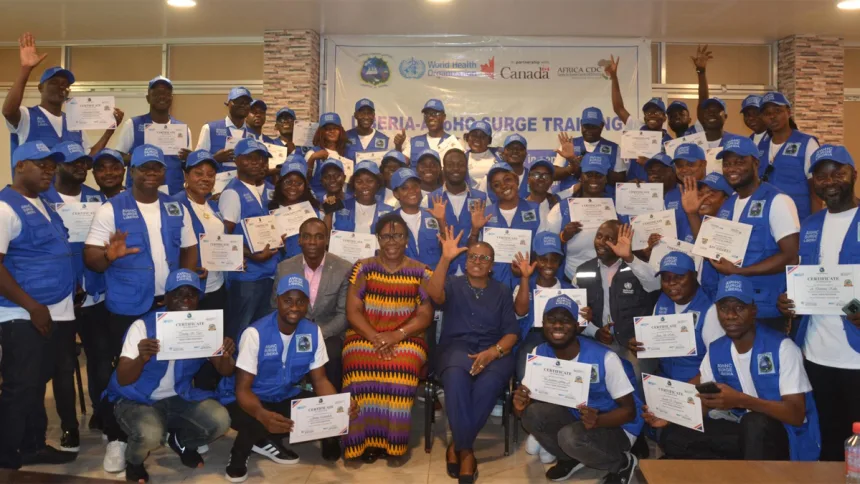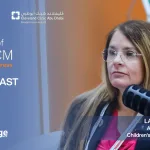Nimba, Liberia- Fifty Liberian professionals have successfully completed a one-month AVoHC-SURGE training program designed to strengthen the country’s capacity to respond to public health emergencies. This collaborative effort, spearheaded by the Liberian government with support from the World Health Organization (WHO), Africa Centres for Disease Control and Prevention (Africa CDC), and the Canadian government, aims to bolster the country’s capacity to respond to public health emergencies.
The AVoHC-SURGE training, a key component of the Emergency Preparedness and Response (EPR) Flagships roadmap, equipped participants with critical skills in areas such as Public Health Emergency Operating Center (PHEOC) management, Humanitarian and Health Cluster Coordination, Gender-Based Violence (GBV) prevention and response, Prevention and Response to Sexual Exploitation, Abuse, and Harassment (PRSEAH) in emergencies and Rapid Response Team (RRT) operations.
“I am honored to be part of the SURGE Team and deeply proud to serve alongside colleagues who are dedicated to serving people across the continent,” said Lieutenant Colonel Dr. Joseph B.N. Kowo Jr., Assistant Chief of Staff for Health Services for the Armed Forces of Liberia Health Services who is now part of the Liberia SURGE team. “The military has a long history of playing a critical role in public health emergencies, as demonstrated by our responses to Ebola, COVID-19, and the current pox outbreak. This comprehensive training ensures we are well-prepared to effectively respond as a unified force when emergencies arise.” He added.
Also Read : WHO urgent flash appeal for the health emergency response in Syria
This intensive program focused on enhancing participants’ ability to effectively mobilize human resources and respond to humanitarian crises and health emergencies within the crucial first 48 hours.
At the graduation ceremony, Dr. Caullau J. Howe, Assistant Minister for Preventive Services, emphasized the significance of this milestone, stating, “This cohort represents a crucial step forward in our preparedness efforts. Liberia has faced numerous public health challenges, including Ebola and COVID-19, underscoring the urgent need for this vital training.”



















